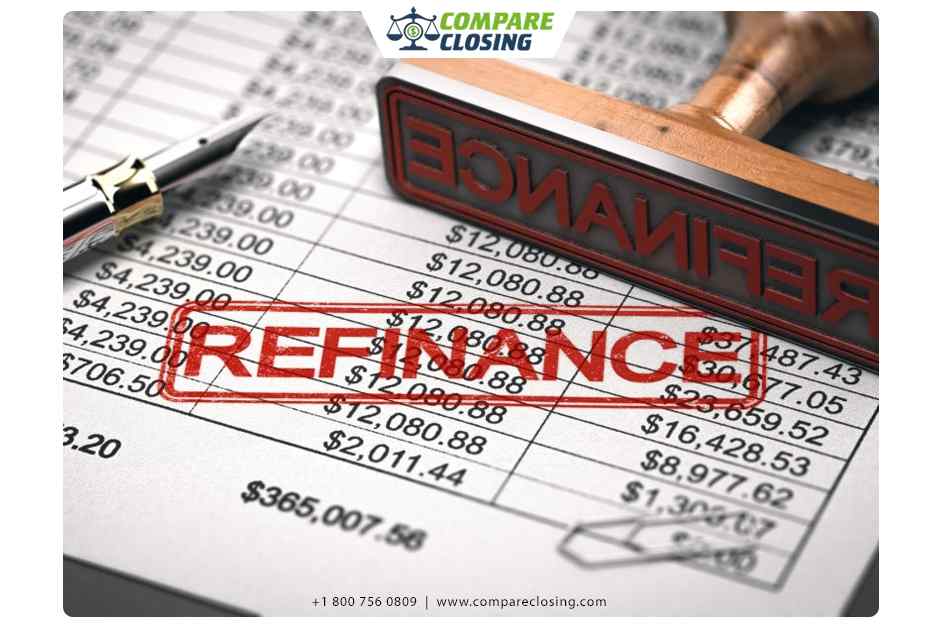Table of Contents
- What Are Netting Escrows & How Does It Work?: The Best Guide - January 2, 2024
- The Secret About Prescriptive Easement: Top Guide 1 Must Know - December 4, 2023
- About Home Equity Loans In Texas And How Can One Obtain It - November 27, 2023
Ways to Refinance Home Equity Loan
There are various reasons that people are thinking about refinancing a home equity loan.
Either they want to reduce their monthly payments by getting a lower interest rate or extending their loan term.
Or they might want to shorten their loan term, so they can pay less total interest in the long run and become debt-free soon.
Cash-out of the home’s equity can be taken for a large purpose like remodeling.
Let us look at various options and the steps to be taken when you planning to refinance home equity loan.
Cash-out Refinance is the 1st possibility
While refinancing a home equity loan a cash-out refinance is an option when you also want to refinance your first mortgage.
At the time of closing of the new loan, part of the proceeds go toward paying off your first mortgage, and the cash-out part will pay off your old home equity loan.
If your home has had enough equity value, you might be able to save some additional cash.
The cash-out options are used by many people for making large purchases like cars or remodeling services because the interest rates of a home equity loan will be lower than a personal loan or auto loan.
If the loan proceeds are used for repairing or upgrading the home, then in most cases the interest can be tax-deductible.
Why This Choice Might Be the Right One
A few of the reasons you might want to refinance a home equity loan are:
If you have a variable-rate loan then before interest rates go up you want to turn into a fixed-rate one.
you have an existing fixed-rate loan with a higher interest rate compared to what you can get today.
Now with your circumstances improved you would like to have a less expensive conventional loan with no private mortgage insurance (PMI) compared to your existing Federal Housing Administration (FHA) loan that was the only option you could qualify for at that time.
Saving money or exiting an unsustainable loan into one you can better manage should often be your main consideration of refinancing a home equity loan.
Eligibility for a cash-out refinance
you must have owned the home for a minimum of six months.
You should have enough home equity to pay off the principal balance on your first mortgage, that you owe on your home equity loan,
You must be able to cover closing costs, and still have not less than a 20% remaining equity stake in your home.
The mortgages that are originated by lenders are often sold off to Fannie Mae or Freddie Mac.
If a house has an LTV ratio higher than 80% then Fannie Mae will not buy cash-out refinance loans on a single-unit principal residence.
If you have a high-balance loan then your LTV ratio cannot be higher than 60%.
The maximum LTV ratio allowed is 70% if you have listed your home for sale in the past six months.
A credit score of at least 640-680 (varies on lender requirement) depending on your LTV ratio is required.
Closing Costs
A closing cost connected with a first mortgage is usually higher than those with a home equity loan.
If the objective to refinance is saving money, then you need to identify your break-even period to see how many months will you need the new loan for before you cover your closing costs.
The shorter the break-even period, the beneficial it is.
You can also roll your closing costs into your monthly payment but if the goal is to save money then you will be paying interest on them until your loan is paid off.
Smart Refinance is another option for a balance of less than $150,000 with no closing cost.
Refinance into a New Home Equity Loan - is the 2nd possibility
If your first mortgage is good enough, or if you don’t need to take out extra cash as a loan, then you can look into refinancing with a new home equity loan.
Why This Choice Might Be the Right One
If you want to get a new loan for the same amount as what you owe in your current loan to save on interest rate or for a shorter term, then opt for a new loan for a somewhat larger amount so that you can cover new expenses.
Or get a new loan with a longer term so that your monthly payments are more affordable, but be aware that you’ll eventually pay more interest, this way.
So if you’re having trouble making the payments this is a better option than defaulting on your existing loan.
Eligibility
A minimum LTV requirement is to be met to qualify, but compared to a cash-out refinance the requirements for home equity loans are lower.
Though the requirements vary from lender to lender, if you belong to a credit union and have excellent credit and lending conditions that are favorable then you can borrow up to 90% or even 100% of your home’s value.
For a home equity loan, you need a credit score of a minimum of 620 otherwise the interest rate will be quite high.
Borrowers with scores of 740 or higher get the best rates. On a home equity loan, unless you close the loan early, the lenders often pay most or all closing costs but if you close your loan in 24-36 months then depending on your location and loan size you’ll have to compensate the lender several hundred to a few thousand dollars for the closing costs.
Difference between a Home Equity Loan vs. a Cash-out Refinance
Both the home equity loans and cash-out refi’s have higher interest rates compared to refinancing the first mortgage.
A home equity loan usually has a lower interest rate than a cash-out refinance.
All the usual mortgage qualification requirements, like having sufficient income and lower debts to make the monthly payments, a stable employment history, proper documentation, and a good credit score are needed to qualify.
Conclusion
While refinancing a home equity loan a cash-out refinance is an option when you also want to refinance your first mortgage.
But if you are comfortable and benefitted from your first mortgage, then you should just pay attention to the current task of refinancing a home equity loan.
If you want to get the best refinance terms then having a good credit score and a low loan-to-value (LTV) ratio is important. Shop around to find the best deal.
Amanda Byford
Amanda Byford has bought and sold many houses in the past fifteen years and is actively managing an income property portfolio consisting of multi-family properties. During the buying and selling of these properties, she has gone through several different mortgage loan transactions. This experience and knowledge have helped her develop an avenue to guide consumers to their best available option by comparing lenders through the Compare Closing business.





